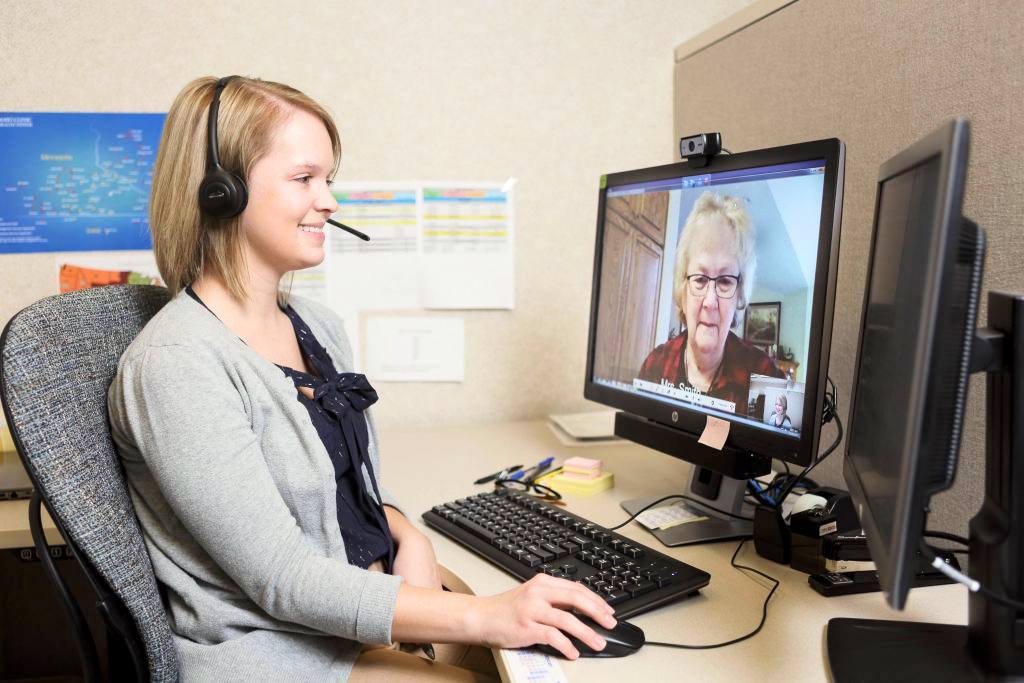-
Six ways home-based cardiac rehab keeps patients safe, healthy during COVID-19

ROCHESTER, Minn. ― COVID-19 presents evolving challenges to health care, in part because it is a new viral disease. People do not have natural immunity and a vaccine hasn't yet been developed. Patients with heart disease are at increased risk of cardiac-related complications and death, and are more likely to develop severe complications from COVID-19.
"Until a vaccine is available, prevention of COVID-19 infection is crucially important for these people," says Randal J. Thomas, M.D., preventive cardiologist and medical director of Mayo Clinic's Cardiac Rehabilitation Program.
While social distancing is necessary to prevent the spread of the infection, it can interrupt other patient care practices that traditionally have been done in person, such as cardiac rehabilitation.
Dr. Thomas says cardiac rehab provides multidisciplinary therapies that are known to help patients recover from heart disease or heart surgery, and reduce their chances of future heart-related problems. It's a strategy that helps patients feel better and live longer.
Unfortunately, in-person, center-based cardiac rehabilitation programs are being closed to help reduce the spread of COVID-19. Mayo Clinic has for years used home-based cardiac rehab with a small number of patients, but the pandemic has made it necessary to transition all cardiac rehab to home-based settings in a matter of weeks.
"Home-based cardiac rehab is a solution to help provide cardiac rehabilitation to patients with heart disease in a home setting, and to help them survive and thrive during this challenging period of time," says Dr. Thomas.
Nationally, only about 25% to 30% of eligible patients participate in center-based cardiac rehabilitation. Some studies suggest that the expansion of home-based programs may help increase participation rates. Dr. Thomas says that efforts are underway to ask insurance carriers, including Medicare, to cover the cost of home-based cardiac rehabilitation and remove the financial barrier to this important care.
Why is home-based cardiac rehabilitation so important right now? Dr. Thomas provides these six reasons:
Home-based rehab keeps patients out of the hospital. A home-based program assures that patients with heart disease receive important cardiac rehabilitation services, wherever they live. It also improves the chances that patients with heart disease will stay healthy and remain out of the hospital, keeping hospital beds available for other, including patients being treated for COVID-19.
It helps enforce social distancing during rehabilitation. Programs at home can assist with social distancing for a high risk group of people (older patients with heart disease).
Healthier eating at home matters. In-home cardiac rehabilitation promotes healthier eating at home, which is especially helpful as fewer restaurants are available due to stay-at-home policies.
Rehabilitation is good for your mental and emotional health. Mental health improves through a variety of mechanisms, including the effects of exercise on production of natural mood-elevating endorphins. Taking charge of your health through positive steps also has a positive impact.
It can support efforts to quit smoking. Continuing cardiac rehabilitation at home reinforces efforts by patients to avoid tobacco. This lowers their risk of developing COVID-19 because smoking increase receptor sites for COVID-19 to enter cells. Smoking also damages lung tissues, making them more prone to infection.
Patients get the support they need. Home-based programs connect patients with professionals who are experts in helping people through the "whitewater rapids" of recovery after a heart attack or surgery.
"Home-based cardiac rehabilitation is much more than just going for a walk at home," says Dr. Thomas. "It is a structured, standardized, evidence-based approach to apply all therapies—lifestyle, medication, and otherwise—that are known to help people with heart disease do better, feel better, and live longer."
Through in-person assessments, as well as phone calls, online messaging, wearable monitoring devices and other approaches, cardiac rehabilitation professionals guide heart patients through the same components of care as in a center-based program. That's good news for patients who are at special risk of COVID-19 illness but also need to stay on track to improve their heart health.
###
About Mayo Clinic
Mayo Clinic is a nonprofit organization committed to innovation in clinical practice, education and research, and providing compassion, expertise and answers to everyone who needs healing. Visit the Mayo Clinic News Network for additional Mayo Clinic news and An Inside Look at Mayo Clinic for more information about Mayo.
Media contact:
- Terri Malloy, Mayo Clinic Public Affairs, newsbureau@mayo.edu







